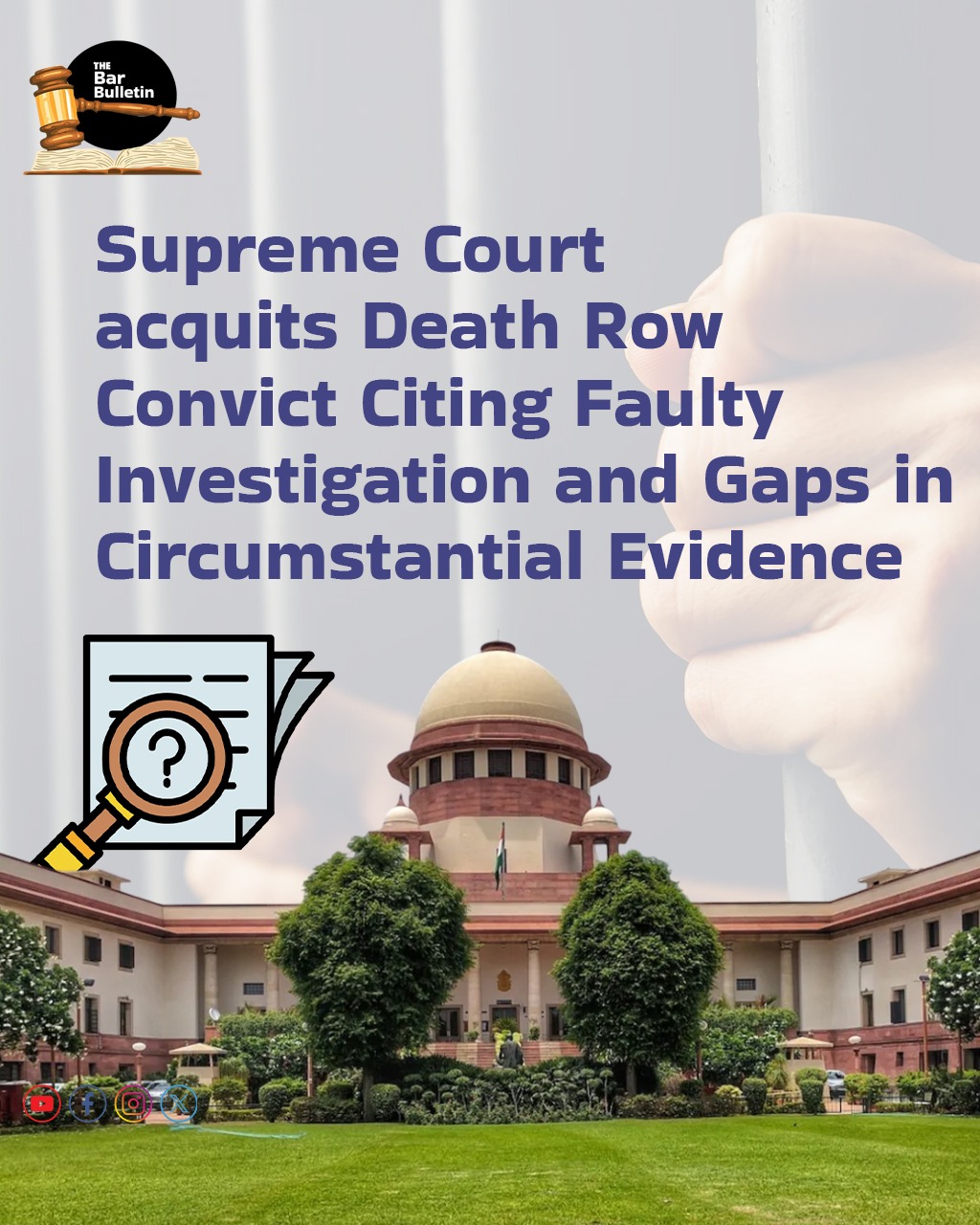The Supreme Court allowed an appeal challenging the Madras High Court judgment dated 13.03.2019, which upheld the death penalty awarded by the Trial Court. The appellant was convicted under Sections 302, 376, and 397 of the Indian Penal Code, 1860, for the alleged rape and murder of two individuals, with the conviction resting solely on circumstantial evidence.
The case arose from the alleged robbery and brutal killing of a young man and woman in Tamil Nadu. The prosecution’s case relied on the testimony of a key eyewitness, recovery of stolen property, and DNA evidence allegedly linking the appellant to the crime.
The appellant, through senior counsel, challenged the conviction on grounds of flawed investigation and unreliable evidence. It was contended that the application of the ‘last seen’ theory was unsupported by credible corroboration, highlighting inconsistencies in the testimony of the principal witness and suspicious delay in reporting the incident. Serious objections were also raised regarding the integrity of the DNA evidence, owing to significant irregularities in the chain of custody, including unexplained delays in sending forensic samples and lack of proper storage, raising concerns of potential contamination or tampering.
The Bench, comprising Justices Vikram Nath, Sanjay Karol, and Sandeep Mehta, found force in these submissions and ultimately held that the prosecution had failed to eliminate reasonable doubt and did not satisfactorily discharge its burden of proving guilt beyond reasonable doubt, especially in a capital punishment case.
The Court went on to condemn the serious investigative lapses, particularly the gross mishandling of forensic samples. It observed that the DNA evidence, which should have been conclusive, had been rendered unreliable due to improper collection, unexplained delays, and broken chain of custody.
Further, the Court underscored the importance of ensuring rigorous evidentiary standards in cases involving death sentences, citing established precedents such as Sharad Birdhichand Sarda vs State of Maharashtra[1] (which lays down the ‘Panchsheel Principles’), Sanjay v. State of U.P.[2], and Anil v. State of Maharashtra[3]. The Court reaffirmed its commitment to safeguarding against wrongful convictions and upholding the constitutional guarantee of fair trial under Article 21 of the Constitution of India.
The Supreme Court allowed the appeal, set aside the conviction and death sentence awarded by the Trial Court and High Court, and ordered the immediate release of the appellant. The Bench parted with directions mandating the adoption of uniform protocols for the collection, handling, and preservation of forensic evidence, as well as training of investigating officers to uphold procedural integrity in criminal investigations.
[1] (1984) 4 SCC 116
[2] 2025 SCC OnLine SC 572
[3] (2014) 4 SCC 69
![]()



